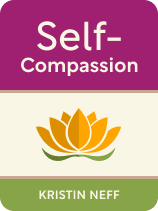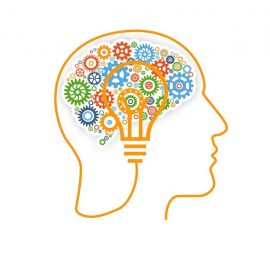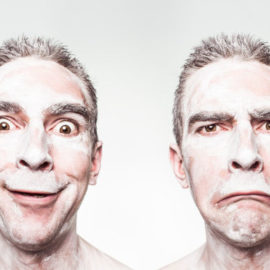

This article is an excerpt from the Shortform book guide to "Self-Compassion" by Kristin Neff. Shortform has the world's best summaries and analyses of books you should be reading.
Like this article? Sign up for a free trial here.
What are Kristin Neff’s recommended self-compassion exercises? How should can you love yourself?
Kristin Neff’s book Self-Compassion explains what self-compassion is and why it’s important in life. She also looks at three practices that comprise it.
Learn Kristin Neff’s self-compassion exercises to practice every day.
Exercise 1: Be Mindful of Your Suffering, As Is
The first of Kristin Neff’s self-compassion exercises is to be mindful of your suffering. Neff says that seeing your suffering exactly as it is—without amplifying, ignoring, or diminishing it—allows you to respond to your pain compassionately and effectively. She says that suffering is unavoidable, and when you simply acknowledge your pain for what it is—a normal (if undesirable) part of life—you can examine it objectively, soothe yourself, and make decisions from a clear-headed place.
(Shortform note: In The Art of Happiness, the Dalai Lama says that accepting your suffering for what it is is not the same as resigning to it. When your purpose is to seek happiness, you should try to reduce your suffering, even as you accept it. You should also try to understand where it’s coming from, which may help you to reduce or eliminate it.)
Neff says it can be difficult for people to recognize and acknowledge their suffering because they fixate on the flaw or failure that caused it, which overshadows the pain. This fixation creates greater mental anguish and compounds suffering while ignoring its root cause, allowing it to fester. When you’re unable to see, and therefore soothe, the root cause of your suffering, you’re more likely to become entrenched in your misery.
For example, if someone tells you that you’re ugly, you may spend hours consumed about how your physical appearance is inadequate, why it’s inadequate, and how you could or should change it. In the meantime, the hurt you feel from being insulted is lost in the mix and, because it’s unattended, continues to grow.
Neff argues that being mindful of your suffering allows you to challenge the thought causing your suffering (for example, that you’re ugly), which frees you from a state of emotional entrapment. Simply acknowledging pain when it arises allows you to take a step back, assess your situation, and respond thoughtfully. Creating this space and responding kindly to your pain allows you to see your suffering and situation in the broader context of adversity that all human beings face, which can make you feel less isolated and further reduce your suffering.
(Shortform note: Psychologists say that acknowledging and addressing your emotional suffering effectively and in a timely manner can also help you avoid a host of physical and psychological problems, including disrupted sleep, substance abuse, anxiety, depression, and PTSD. This is because when you pretend that your emotional pain doesn’t exist, you amplify it: Ignoring your suffering sends a signal to your brain that your emotions are bad or dangerous, which can trigger physical responses, such as increasing your heartbeat and breathing more shallowly. But when you acknowledge and validate your emotional suffering without judgment, you provide the support you need to let the feelings and pain follow their natural ebb and flow.)
Exercise 2: Be Kind to Yourself
Neff says that to be kind to ourselves, we can’t simply stop being self-critical, we have to actively give ourselves comfort when we’re in pain, just as we would with a close friend who’s suffering. When you respond to your pain by comforting yourself, you trigger the release of the love and bonding hormone, oxytocin, which reduces fear and increases feelings of calm, safety, trust, and connectedness. Consistently engaging in this practice sets in motion a healthy cycle of caretaking and caregiving: By becoming more confident in your ability to tend to your own needs, you become more confident in yourself. This confidence empowers you to show your authentic self to others, which in turn allows you to cultivate trust with and receive care from others.
(Shortform note: Doctors say that relationships rooted in trust, honesty, and compassion are also physically healthy and healing. Feeling loved, respected, understood, and supported by your partner, friends, or colleagues can boost your immune system and delay disease and death.)
Neff acknowledges that even as you provide yourself compassion, you won’t be able to stop critical and judgmental thoughts about yourself from coming into your head.However, you don’t have to fuel them by believing they’re true. The more gently you treat yourself when you engage in self-criticism, the less space you give your self-loathing to grow.
(Shortform note: Research has shown that judging ourselves and others goes hand-in-hand: We often project our own inadequacies onto others, criticizing them for things we dislike about ourselves. In Girl, Wash Your Face, Rachel Hollis acknowledges that everyone judges—but she says it needs to stop because it’s ruining women’s friendships. She argues that the first step is to acknowledge that you judge people all the time. Then, address your insecurities and police your judgmental tendencies.)
You can practice self-compassion by paying attention to and making note of unkind things you say to yourself, responding to your pain with care, and reframing observations of yourself in a positive way.
For example, imagine you trip and fall in front of a group of people and the first thing you say to yourself is: “I’m so clumsy! Everyone’s laughing at me because I’m a klutz!” Notice that you just judged yourself, then be kind to yourself by talking to yourself like you would to a friend who just tripped and fell: “I know that you feel embarrassed, but criticizing yourself is causing you additional, unnecessary pain. Everyone falls—we’re all human. Let’s take five minutes to go get a coffee and muffin so we can feel better.”
(Shortform note: Doctors say that self-compassion can be a particularly effective approach for people with ADHD, who are often ruthless self-critics when they make mistakes. They argue that practicing self-kindness and mindfulness can help people with ADHD manage stress associated with the condition and improve their long-term resilience. If you live with ADHD, you can practice by thinking of a time you were upset and saying to yourself calmly: “Wow, this is terrible.” Then follow with, “Everyone struggles. May I be gentle with myself and accept myself for who I am.”)
Exercise 3: Recognize that Suffering Is the Universal Human Connection Point
Neff says that engaging in self-compassion means being aware that the pain you feel during hard times is the same pain others feel in hard times, even though your circumstances may differ. Recognizing suffering as a connection point bonds you to all human beings.
Our common humanity is the most important connecting point that humans have because it transcends all other group distinctions and can’t be reduced. In other words, our shared humanity is bigger than race, class, and gender lines; political and religious affiliations; and football, foosball, and hockey teams. She says it’s critical to see your self-worth and sense of belonging as rooted in common humanity because it’s the single, all-encompassing category from which you can never be cast out. You can get kicked off the foosball team, but you’ll always be part of humanity.
Neff says that central to connecting with others is acknowledging a) your imperfections and b) that these imperfections are one small part of a larger, multifaceted picture of characteristics and circumstances that make you who you are—as opposed to all-defining characteristics that make you bad or unworthy. When you view your flaws as part of a larger whole and things to learn and grow from, you can be less critical of them and acknowledge that you’re doing the best you can with the circumstances at hand.
When you don’t see this connection and focus on your misery or lack of self-worth, it’s difficult to see anything outside of your experience, which can leave you feeling disconnected, isolated, and alone. This problem is particularly pronounced for individuals consumed with self-loathing or unhappiness—for example, people who feel deep shame or inadequacy, and perfectionists.
Neff points out two things that worsen the problem of focusing too much on our individual troubles and not enough on our common humanity:
- An American culture that encourages stoicism, individualism, and distinguishing yourself as better and more successful than others
- The human tendency to join groups and teams and adopt an “us vs. them” mentality that centers on diminishing and ostracizing non-group members
Both factors encourage a mindset of disconnection and factioning off from others, rather than connection and coming together.

———End of Preview———
Like what you just read? Read the rest of the world's best book summary and analysis of Kristin Neff's "Self-Compassion" at Shortform.
Here's what you'll find in our full Self-Compassion summary:
- The key practices, benefits, and obstacles to embracing self-compassion
- How self-compassion can improve your relationships with others
- The two biggest obstacles to self-compassion and how to overcome them






